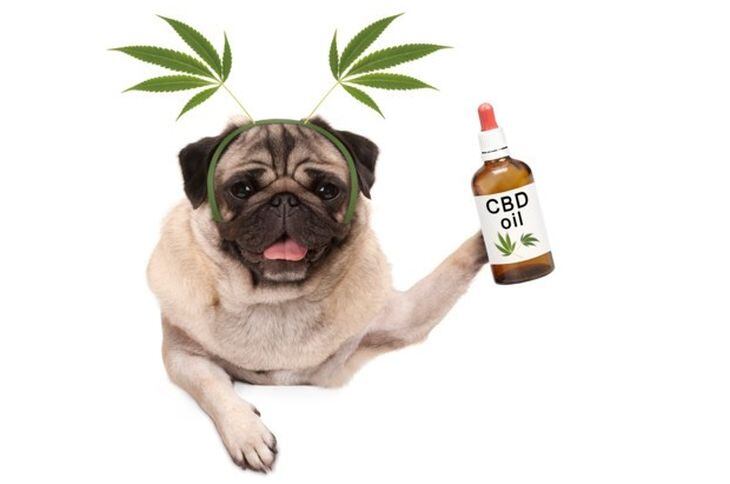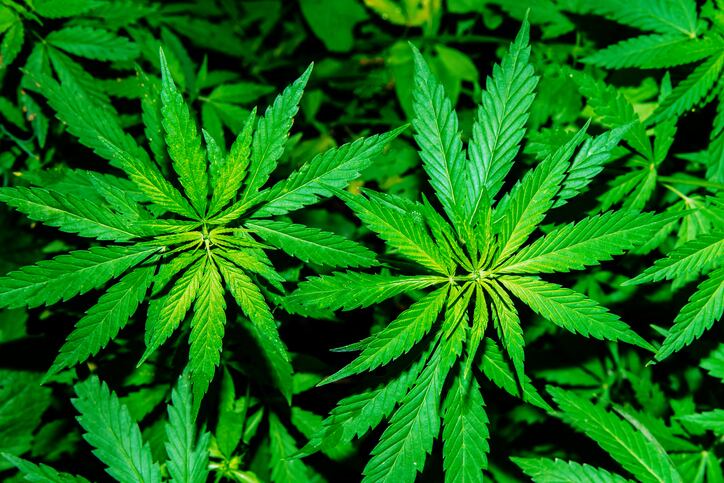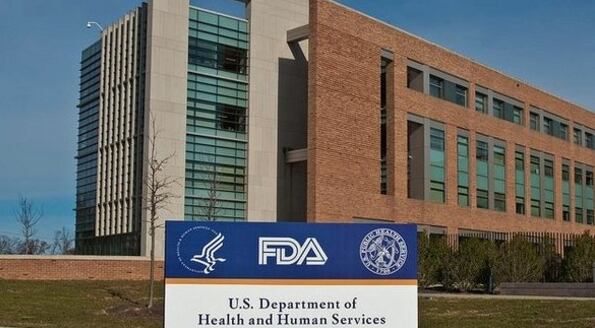Hahn delivered his report this week to the US House and Senate Committees on Appropriations. The report was mandated by Congress when it appropriated additional funding for FDA for hemp/CBD market surveillance activities. The Natural Products Association shared the content of the report with its members early yesterday after obtaining the text from a federal staffer.
FDA: Safety of CBD still in question
Hahn’s 15-page report covers CBD in drugs for animals and humans, its use in dietary supplements, foods and cosmetics and vape products. It also offers an update on enforcement activities and takes a look toward the future of the hemp/CBD question.
Hahn said FDA still has many questions about the safety of CBD.
“FDA continues to be concerned about the potential safety risks of using CBD and about problems related to a number of currently marketed CBD consumer products under FDA jurisdiction, like mislabeling or the potential for contamination with delta-9- tetrahydrocannabinol (THC), pesticides, and heavy metals. In addition, since the May 31, 2019, public meeting, available data have further demonstrated that CBD is not a risk-free substance. Consumers should be aware of the potential risks associated with CBD products,” the report said.
NPA: Maximum exposure level ought to be key question
Daniel Fabricant, PhD, president and CEO of NPA said he was disappointed in the seemingly timid nature of the report.
“It’s very thin. It’s more of a status quo statement. I appreciate Dr. Hahn’s approach in that he seems to be a bit more open to dialogue than was the case previously,” Fabricant said.
Fabricant reiterated his organization’s stance that the key first step in development of a regulatory framework for CBD in foods and supplements must be a determination of a maximum safe exposure level.
“You can’t review a whole spectrum extract unless you know that. What’s the maximum amount of CBD we should be exposed to through foods and supplements? Once we know that number everything cascades from there,” he said.
Hahn also said the agency has been disappointed in the amount of data submitted by industry stakeholders in the wake of the May 31 meeting. The report said the docket for these submissions has been reopened and will remain so indefinitely.
FDA made specific requests in the Federal Register notice announcing the hearing for data regarding the safety of cannabis products, including CBD products. We received only limited amounts of data in response to this request. FDA report
Problem of trade secret privacy was raised before
His report did note that a potential roadblock has been the fact that information submitted to the agency goes up on the federal docket and therefore becomes public. Many in the industry have reportedly been reluctant to share information for fear of exposing their trade secrets.
“To this end, we are working to establish a clear process by which proprietary information regarding specific products could be submitted to the Agency, with appropriate protection against disclosure of trade secret or confidential commercial information. It is our hope that this process will enable responsible industry participants to share relevant information with FDA about specific products, which could help inform appropriate regulatory steps,” the report read.
Steve Mister, president and CEO of the Council for Responsible Nutrition, voiced some frustration with the perceived lethargy with which the agency is moving forward on the issue.
“We are very disappointed in this report. It seems again that FDA is just kicking the can down the road,” he said.
“They are ‘working to establish a clear process?’ We talked to FDA last spring about the issue that there was no way for companies to give FDA their safety data in a way that their confidential information would not be made public. Now they acknowledge that as a problem while at the same time being critical of industry for not submitting enough data,” Mister said.
Loren Israelsen, president of the United Natural Products Alliance, characterized the report as “disappointing but not unexpected. FDA continues to commit only to continued exploration of a regulatory pathway. It is clear that even after over a year of working on this, the agency is far from making a decision.”
Looking forward to rule-making procedure
Hahn said FDA would evaluate the “issuance of a risk-based enforcement policy that would provide greater transparency and clarity” while the agency contemplates the next step, which could include a formal rule making procedure.
Attorney Greg Kaufman, a partner at law firm Eversheds-Sutherland, said the official mention of the possibility of a rule making process is welcome and is something that industry stakeholders have been advocating for. But no one should be under any illusion that it will be quick and easy. Any rule FDA might craft will have to be robust enough to stand up to a potential court challenge.
“The FDA will likely be concerned about issuing a rule that can be attacked and possibly vacated on grounds that it is arbitrary and capricious. It will be important for the FDA to have a factual basis to support a rule where the underlying rationale and factual assertions can be deemed reasonable. The rulemaking process is a potential path forward but it will not be a short path,” he said.
Prospect for CBD in foods dims
Matt Oscamou, co-founder of Weller, a CBD snack and beverage brand, said the report is a “solid step in the right direction” toward a final roadmap by which CBD products can lawfully go to market. This lack of clarity has restrained the market up to now, with some potential retail and distribution partners holding back.
“We feel the best approach is for the FDA to focus on potency and hemp extract/CBD ingredient integrity rather than form factor because it has become quite clear that consumers enjoy getting CBD in products that are convenient to their daily life — such as sparkling water, grab-n-go snacks and drink mixes that can be added to anything,” he said.
But Brian Sylvester, special counsel at the law firm Foley & Lardner LLP, said reading between the lines of the report shows FDA seems to be moving away from food as an appropriate CBD delivery mode. A precedent here might be seen in the agency’s unease with the addition of melatonin to brownies in an action taken almost a decade ago.
“With the release of FDA’s report, we now know that FDA currently views dietary supplements as a potentially more viable pathway than food,” Sylvester said.
The patchwork quilt question
Dr. Betsy Booren, senior vice president of regulatory and technical affairs at the Consumer Brands Association, said while the wheels turn slowly at FDA the market continues to explode. State and local regulators won’t sit idle while FDA deliberates.
“Our research shows a majority of Americans (77%) mistakenly assume CBD products are already regulated at the federal level. The current patchwork system of state regulations, underfunded oversight and enforcement, and lack of comprehensive scientific data on CBD is simply not enough,” she said.
Products being made in inspection free zone
Fabricant said in addition to the safe level question, the other issue is that while FDA mulls the regulatory pathway question, it is not performing its basic function with regard to this burgeoning sector of the market. He said a recent NPA FOIA request showed that to date FDA has inspected only four firms that manufacture CBD products.
“If there are 2,500 products out there as some people estimate, I think the more pressing safety concern is how they’re manufactured. At my time in the agency I always said the most important thing FDA does is inspecting and testing,” he said.

DIETARY SUPPLEMENTS: Under current law, CBD products cannot lawfully be marketed as dietary supplements, but FDA has the authority to create an exemption through notice-and-comment rulemaking that would allow products containing CBD to be sold legally as dietary supplements. The Agency is actively evaluating what and how much data would be sufficient to support a conclusion that CBD can safely be allowed in dietary supplements under certain conditions.
BROAD/FULL SPECTRUM VS ISOLATES: We are actively seeking information from individual manufacturers, trade groups, and others regarding the processes by which 'full spectrum' and 'broad spectrum' hemp extracts are derived, what the content of such extracts is, and how these products may compare to CBD isolate products. Such information will be critical to informing our evaluation of the regulatory status of such products.
FOODS AND BEVERAGES: It is not currently lawful to add CBD to human or animal food, and the data currently available to FDA raise safety concerns about the use of CBD in food. We encourage interested parties to continue to develop and share with FDA information regarding whether there are conditions under which CBD could safely be added to food
ENFORCEMENT: We are actively obtaining more data about potentially safe levels of CBD and evaluating issuance of a risk-based enforcement policy that would provide greater transparency and clarity regarding FDA’s enforcement priorities while FDA potentially engages in the process of rulemaking… . As we move forward, FDA intends to continue taking action to address violations we identify that put the public at risk.
SAFETY FDA continues to be concerned about the potential safety risks of using CBD and about problems related to a number of currently marketed CBD consumer products under FDA jurisdiction, like mislabeling or the potential for contamination with delta-9- tetrahydrocannabinol (THC), pesticides, and heavy metals. In addition, since the May 31, 2019, public meeting, available data have further demonstrated that CBD is not a risk-free substance. FDA is working to further understand the safety profile of CBD, especially for sustained and/or cumulative exposure, co-administration with other medicines, and vulnerable populations like children, pregnant and lactating women, the elderly, and unborn children.
LACK OF DATA: FDA made specific requests in the Federal Register notice announcing the hearing for data regarding the safety of cannabis products, including CBD products. We received only limited amounts of data in response to this request… Researchers and other stakeholders should have a clear way to submit information to the Agency as it becomes available. To facilitate such information sharing, we are reopening the docket that we established as part of the May 2019 public meeting.
Source: FDA report on CBD, March 2020



